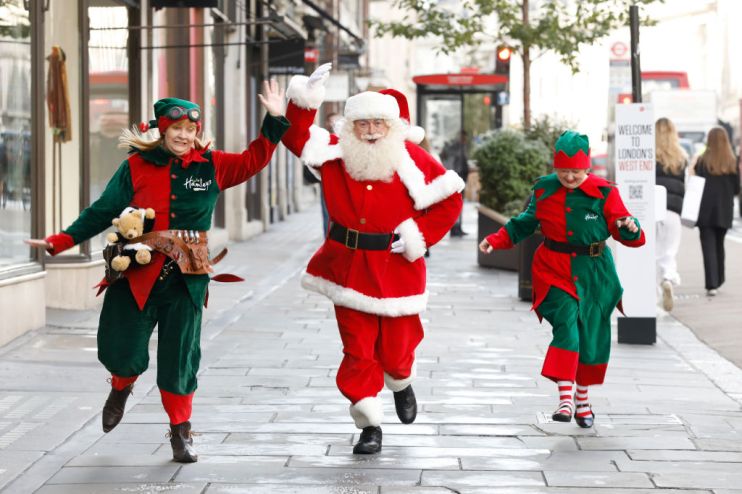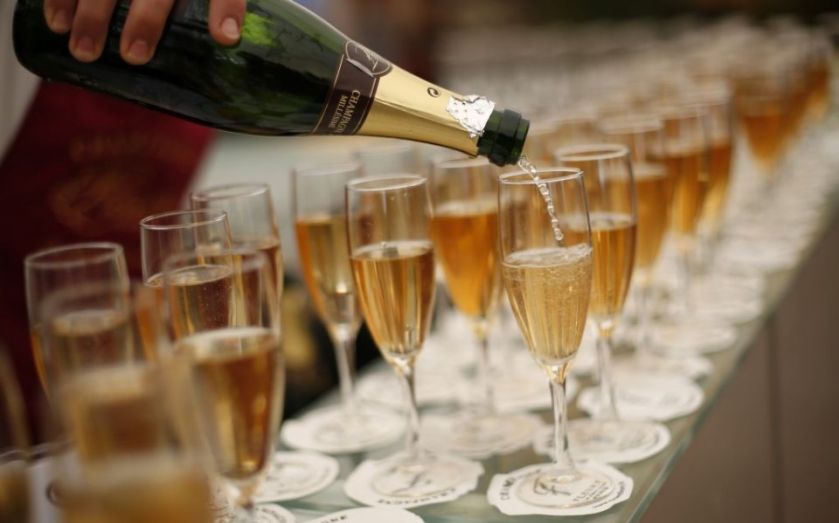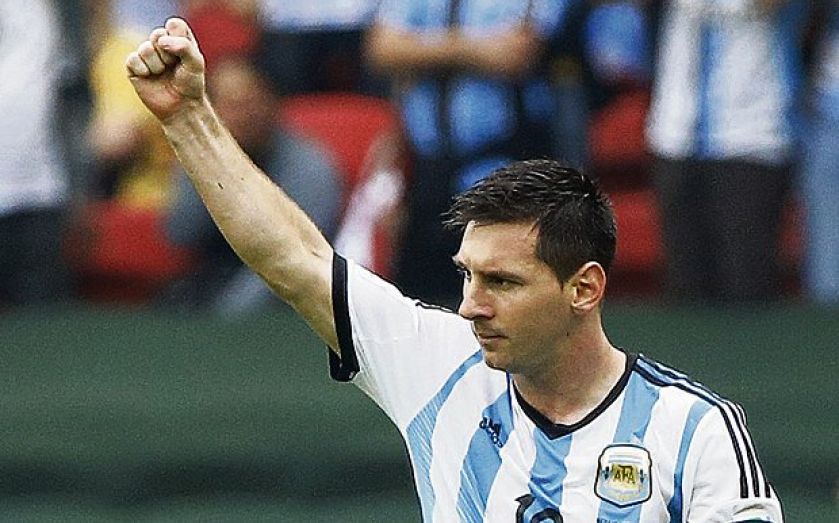The Christmas Quiz: Twelve questions to test your grey matter

It’s the Christmas Quiz you’ve been waiting for! Each year City A.M. publishes Deloitte’s economics team’s festive brainteasers, produced as part of their regular Monday briefing. Grab a pen – the answers are at the bottom, and come packed with plenty of extra details…
1. the nineteenth century Scottish historian and philosopher Thomas Carlyle dubbed economics the “dismal science”. Generations of economists have sought to live up to that definition, perhaps no more so than Joel Waldfogel, who, in 1994 published an article titled “The Deadweight Loss of Christmas” in the American Economic Review. In it, Mr Waldfogel calculated the loss of welfare involved in giving presents at Christmas. The calculation is based on the idea that, on average, the value of a gift to the recipient is less than the cost of the gift to the purchaser. This leads to the very dismal conclusion that money is the most efficient gift of all. Using Mr Waldfogel’s approach, how much was wasted because of gift-giving in the UK last year?
£0.1bn
£1.4bn
£3.0bn
£4.2bn
2. Gross Domestic Product (GDP) is the main measure of economic activity. Many alternative indicators have emerged that purport to give more timely information on the state of consumer spending. Which one of the following has not been used as a measure of consumer activity?
The lipstick index
The men’s underwear index
The tie index
The glove index
3. The pandemic has caused a step change in levels of homeworking in many countries. A 2022 survey of US workers by Work from Home Research found that people who worked from home saved an average of nine minutes a day on personal grooming. According to the survey, what was the most popular way of saving time on personal grooming?
Not brushing teeth
Not showering
Not wearing deodorant
Wearing dirty clothes
4. Which one of the following champagnes came top in Which? magazine’s blind taste test this year?
Tesco Finest Premier Cru Champagne – £23 a bottle
M&S Delacourt Brut Champagne – £25 a bottle
Lanson Le Black Label Brut – £36 a bottle
Moet & Chandon Brut Imperial – £39 a bottle

5. There have been more Google searches for the word ‘strike’ in the UK this year than in any comparable period since 2004. With strikes across essential public services, from the railways to the Royal Mail, industrial unrest is becoming increasingly common. How many working days were lost to strike action in September, the latest month for which official data are available?
205,000
1m
6m
7m
6. Energy prices have soared this year, causing governments in Europe to step up the transition to renewables. How does the cost of electricity generated by gas compare to the cost of electricity generated from new wind turbines?
Gas costs five times as much as wind power
Gas costs twice as much as wind power
Gas costs roughly the same as wind power
Gas costs are about 80% of the cost of wind power
7. Which currency has featured the North Pole, the home of Santa Claus, on one of its banknotes?
The Norwegian krone
The Canadian dollar
The Danish krone
The Finnish euro
8. The Bank of England is expected to announce a 50bp (0.5%) increase in interest rates when it meets on 15 December. How many times has the Bank raised interest rates since last November’s low of 0.15% to reach the current level of 3.0%?
2
4
8
11
9. Several UK MPs have announced that they do not intend to stand at the next election. Of the four constituencies below, two are the safest Labour and Conservative seats (by the size of the majority at the last general election in 2019 relative to total votes cast) and two are the most marginal Labour and Conservative seats. Which is which?
Bury North, Greater Manchester
South Holland and The Deepings, Lincolnshire
Liverpool Walton, Liverpool
Bedford, Bedfordshire

10. With the FIFA World Cup underway football fans are experiencing the ups and downs of following their national teams. In 2018 a paper by economists Peter Dolton and George MacKerron attempted to quantify the effects on the happiness of fans of their teams’ successes and failures. Which one of the following activities has a similar effect on people’s self-reported happiness as a football fan experiences when their team wins?
Watching TV or a film
Listening to music
Theatre, dance or a concert
Sports, running or exercise
11. The UK price of three of the four following items rose by more than 20% in the year to October. Which item has fallen in price in the last year?
Natural gas
Self-raising flour
Second-hand cars
Butter
12. The Economist Intelligence Unit’s Worldwide Cost of Living Survey gauges the cost of a representative list of goods and services in 173 cities across the world to compare the cost of living in different places. Which one of the following cities was ranked as the costliest place to live in the world in this year’s survey?
New York
London
Tel Aviv
Damascus
Ready to discover the answers?
1. C – £3.0bn. Joel Waldfogel estimated that 10% of the value of gifts given at Christmas is wasted or, in the terminology, deadweight loss. In 2021, there were 54.5m people over-15s in the UK and the average adult spent £548 on Christmas presents. 10% x 54.5m x £548 = £3.0bn.
2. D – The glove index. The glove index is imagined, the other three have, at various times, been used to gauge consumer spending. The idea for the lipstick index came from Leonard Lauder, chairman of the board of Estee Lauder, who in 2001 saw lipstick as an affordable indulgence, sales of which he argued would rise in a downturn. The men’s underwear index is based on the opposite notion – that sales of men’s underwear are cyclical, falling in a downturn as men economise by deferring new purchases. The tie index came into being in the 2009 global financial crisis. Sales of ties were seen then as a measure of job insecurity, as City workers abandoned the ‘dress down’ ethos of the dotcom era for greater formality – presumably in an attempt to hang on to their jobs.
3. B – Not showering. 15% of people reported that they save time by not showering when working from home, 7% did not use deodorant, 6% wore dirty clothes and 5% said they did not brush their teeth.
4. A – Tesco Finest Premier Cru Champagne. Despite being one of the lower cost brands tested, Tesco’s champagne came out on top with Which?’s experts noting that it has hints of brioche and roast apples and a nutty finish.
5. A – 205,000 total working days were lost due to strike action in the private and public sectors were lost, the highest monthly tally since July 2014 when over a million public sector workers took part in strike action. However, September’s total is low by the standards of the 1930s, the 1970s and the 1980s. The worst month for strikes was September 1979, following the Winter of Discontent, with a total of 11.7m days lost. In October 1984, at the height of the miners’ strike, 3.1m working days were lost to strike action. 1.6m days were lost to strikes in March 1944. Perhaps surprisingly, strikes were more common during the war than they have been in the last two decades.
6. A – Gas costs five times as much as new wind power. The UK government auction recently secured a new 7GW of offshore wind capacity at a price of £44/MWh. This is one-fifth the cost of electricity generated from natural gas last week, of £216/MWh. New wind capacity is cheap at current gas prices, but wind power is less flexible and reliable than natural gas which can be turned on and off to meet demand.

7. A – The Norwegian krone. The 1994 version of the Norwegian 200-krone note featured the North Pole, along with the aurora borealis and Birkeland currents, on the reverse. The note also featured Kristian Birkeland, a Norwegian scientist renowned for his theories of electric currents that explain the natural phenomenon of the aurora borealis.
8. C – 8. The Bank has announced eight increases in interest rates since last December comprising one 15bp move, four 25bp hikes, two 50bp hikes and one 75bp hike. The last time the Bank raised interest rates so many times in one year was in 1988. That tightening cycle, which continued through 1989, led to a recession and a crash in house prices.
9. Liverpool Walton is the safest Labour parliamentary seat, where Labour MP Dan Carden took 85% of all votes cast at the 2019 election. South Holland and The Deepings in Lincolnshire (b) is the safest Conservative seat in the country, where Conservative incumbent John Hayes won 76% of the vote in 2019. Bury North (a) has long been a marginal seat, typically being won by the party that wins power nationally. It is currently held by Conservative MP James Daly with 46.2% of the vote against Labour’s 46.0%. Bedford is an ancient seat, its first MP, in 1295, was John Cullbere. The current MP, Mohammad Yasin, held the seat for Labour in 2019 with 43.3% of the vote against 43.0% for the Conservative candidate.
10. B – Listening to music. The authors found that football fans saw a four-point improvement in their happiness on a scale of 0–100 scale in the hour following their team’s win, the same as the uplift to happiness from listening to music. Sport is associated with a seven-point improvement in happiness and theatre and dance or a concert an eight-point gain. Fans who are in the stadium gain an even greater uplift to happiness, of ten points, when their team wins. This is second only to ‘intimacy’, which yields a 12-point improvement in happiness. Unfortunately for fans, when their team losses their happiness falls by eight points, far more than the four-point uplift from winning. This finding led the authors to question whether following a football team is rational.
11. C – Second-hand cars. The price of second-hand cars fell by 2.6% in the year to October, according to the Office for National Statistics. Second-hand car prices rose sharply in 2021 due to a shortage of new cars caused by disrupted supply chains. More recently the squeeze on consumer incomes has hit spending on cars, and second-hand car prices have edged lower. In the last year the price of natural gas has risen by 80%, self-raising flour by 38% and butter by 27%.
12. A – New York. It tied with Singapore as the most expensive city in 2022. London was ranked in 27th place. Tel Aviv, last year’s most expensive city fell to third place in the ranking. Damascus, which is about 300km from Tel Aviv, was once ranked as the world’s cheapest city.